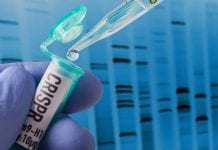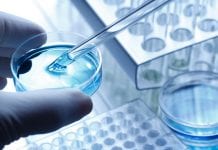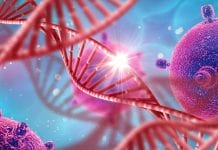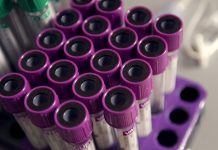DNA Related News
What do you know about the new CRISPR Cas9 gene editing system?
Reported in Genome Medicine, a new CRISPR Cas9 gene editing system has been developed which adds genes to create mouse models of liver cancer.
A...
Liquid biopsies: detecting cancerous DNA in the blood of lung cancer patients
Published in the Annals of Oncology, using the blood of lung cancer patients, researchers have detected cancerous DNA, could this be an advancement in...
Understanding human health with genome analysis
Understanding human health has been taken to another level as researchers at the Garvan Institute of Medical Research and UNSW, Australia, have published a...
European Bioinformatics Institute to tackle life threatening diseases
Following a £45 million (~€52.7 million) investment, the European Bioinformatics Institute is one step closer to improving the world’s understanding of genetics and molecular...
The eccentric marvels of biology: using tweezers to study FUS droplets
Did you know we can use laser ‘tweezers’ to study FUS droplets? Well, according to the University at Buffalo, USA, studying this protein can...
The secret life of antimicrobial peptides revealed by CRISPR
Despite their importance, we know very little about antimicrobial peptides, but scientists have used CRISPR to unlock details of these peptides to combat infection.
Antimicrobial...
The custom-built molecule designed to battle a rare genetic disease
Scientists at the University of Bath, King's College London and Brunel University London, UK, have created a molecule offering protection to patients with rare...
Have researchers found a new approach to treating aggressive cancer?
Researchers at MD Anderson, USA, discovered some forms of aggressive cancer may respond to a combination of immunotherapy and DNA damage repair inhibitors.
According to...
Enhancing analysis of clinical biomarkers in medicine
Published in Genomic Medicine, researchers present new genetic testing technology which enhances precision of analysis of clinical biomarkers in medicine.
A team of researchers from...
Gene editing capsaicinoids: should researchers engineer a spicy tomato?
With the latest gene editing techniques, scientists can now insert capsaicinoids, the molecules that give peppers their spiciness, into tomatoes – introducing the spicy...
Natural selection in womb: can this explain adulthood health problems?
Researchers propose random epigenetic differences cause embryos to survive under adverse conditions, however survivors may experience adulthood health problems.
According to the international research team...
CRISPR-Cas9 mutations: prediction tool for gene editing
The largest study of CRISPR-Cas9 mutations to date has developed a method to predict the exact mutations CRISPR-Cas9 gene editing can introduce to a...
Unexplored gene recombination in the brain linked to Alzheimer’s disease treatment
New tech reveals DNA in neurons are 'mixed and matched', therefore the gene recombination could be a new form of Alzheimer's disease treatment.
According to...
Enzyme function affected by changes in external surface
Research shows changes to enzyme surfaces affects the enzyme function, this being the substrate specificity by modifying how densely it is packed inside.
These findings...
Blood test could reveal return of skin cancer
Survival rates for skin cancer patients could be significantly improved thanks to an ‘early warning’ blood test which provides a simple way of detecting...
















